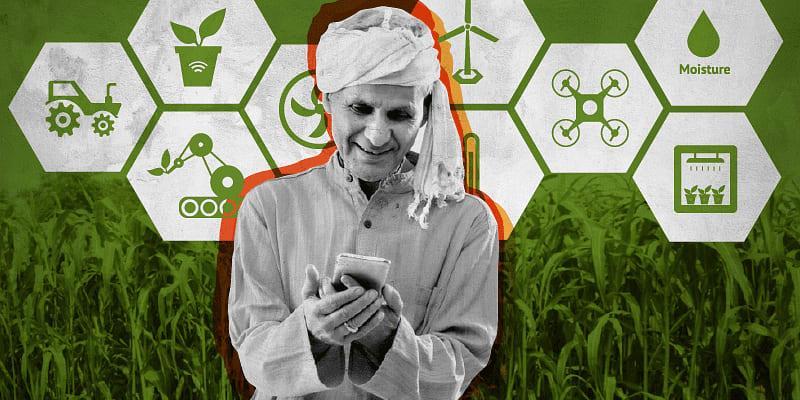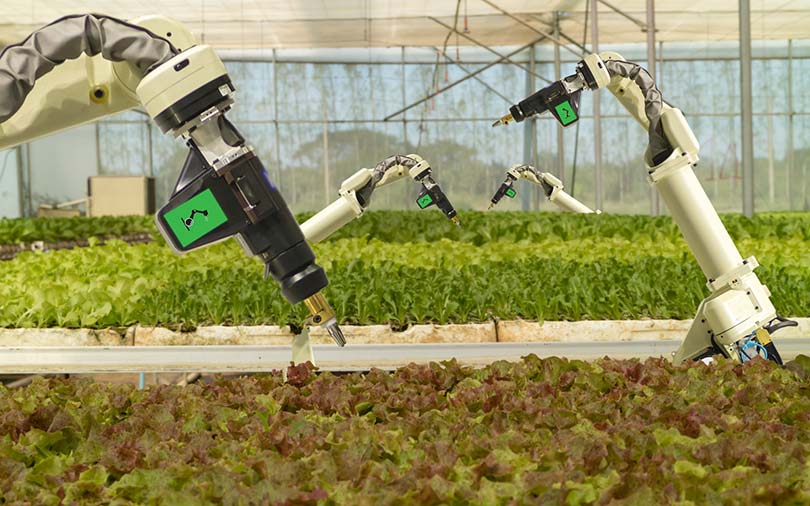Investments in Indian agri-tech startups fell 45% between FY22 and FY23: FSG Report

Investments in Indian agri-tech startups fell 45% between FY22 and FY23: FSG Report
Investments in Indian agri-tech startups witnessed a significant decline of 45 percent between the fiscal years 2021-22 and 2022-23, as reported by a new study from consulting firm FSG. This decline is attributed primarily to the global increase in interest rates and heightened investor caution amid growing uncertainties.
The report also highlighted that global agri-tech investments experienced a 10 percent decline between calendar years 2022 and 2023.

FSG’s outlook for the agri-tech sector suggests that the funding slump is expected to persist into the fiscal year 2023-24. However, it anticipates a resurgence in funding in the fiscal year 2024-25. During this period of subdued investment, startups are expected to prioritize profitability as a strategy to navigate the challenges of the upcoming financial year.
This trend reflects the influence of external economic factors and market conditions on investment flows in the agri-tech sector in India and globally, as well as the adaptive strategies adopted by startups to weather uncertainties.
The consulting firm FSG suggests that investors are likely to maintain a cautious approach and allocate their limited funding towards established business models in the agri-tech sector. This includes providing follow-on funding for companies in the mid-stream agri-tech category, which may be perceived as having a proven track record.

Rishi Agarwal, Managing Director and Head-Asia at FSG, commented on the trends identified by the firm. He highlighted how the investment dynamics in the Indian agri-tech sector are influenced by global economic trends. Agarwal also emphasized that during periods of slower investment, startups should use the opportunity to refine their business models and work towards achieving profitability. This adaptive approach is essential for startups to thrive in the ever-evolving landscape of agri-tech and navigate challenges associated with funding fluctuations.
The report titled ‘India’s Unfolding Agri-Tech Story: Updates and Emerging Themes in India’s Agricultural Technology Sector’ highlights the trends in India’s agri-tech sector. In the 2021-22 financial year, the Indian agri-tech sector experienced a successful year in terms of venture capital funding. However, in the subsequent fiscal year (FY23), there was a significant decline in funding, which can be attributed to a global slowdown in funding activity.

The contrasting numbers of investment deals and the total funding amount in the Indian agri-tech sector between FY22 and FY23 highlight the complex dynamics at play in the startup funding landscape. While the number of investment deals increased from 121 in FY22 to 140 in FY23, suggesting sustained investor interest and engagement with the sector, the total funding raised decreased significantly.
The decline in total funding, dropping from USD 1,279 million in FY22 to USD 706 million in FY23, suggests a more cautious approach by investors in terms of deal size and allocation of capital. This trend can be attributed to various factors, including global economic conditions, changes in investor sentiment, and evolving strategies of both investors and startups.
FY22’s robust funding environment may have driven startups’ valuations to unprecedented levels, prompting a correction in FY23 as investors sought a more balanced approach. This dynamic reflects the impact of broader economic and global factors on the investment landscape for agri-tech startups, highlighting the need for startups to adapt to changing market conditions and investor expectations.
The report underscores the shift in investment dynamics in the Indian agri-tech sector between FY22 and FY23. While FY22 experienced a surge in investments in agri-tech startups, resulting in significant increases in startup valuations, the subsequent correction in FY23 has ushered in a more cautious investment climate.
Notably, the report highlights the maturation of mid-stream agri-tech startups, with a focus on growth and late-stage funding rounds. For instance, a significant portion of investments in startups concentrating on output linkages and quality management (56 percent) were directed towards their growth and late-stage phases. Similarly, for other mid-stream startups, such as those offering agri-carbon or agri-fintech solutions, a substantial 91 percent of investments were allocated to growth and late-stage rounds.
Furthermore, the report notes that many midstream tech startups have embarked on inorganic expansion through strategic acquisitions. This strategic approach reflects the evolving landscape of agri-tech, with startups seeking to broaden their offerings and capabilities through acquisitions to address the evolving needs of the agriculture sector and its stakeholders.




